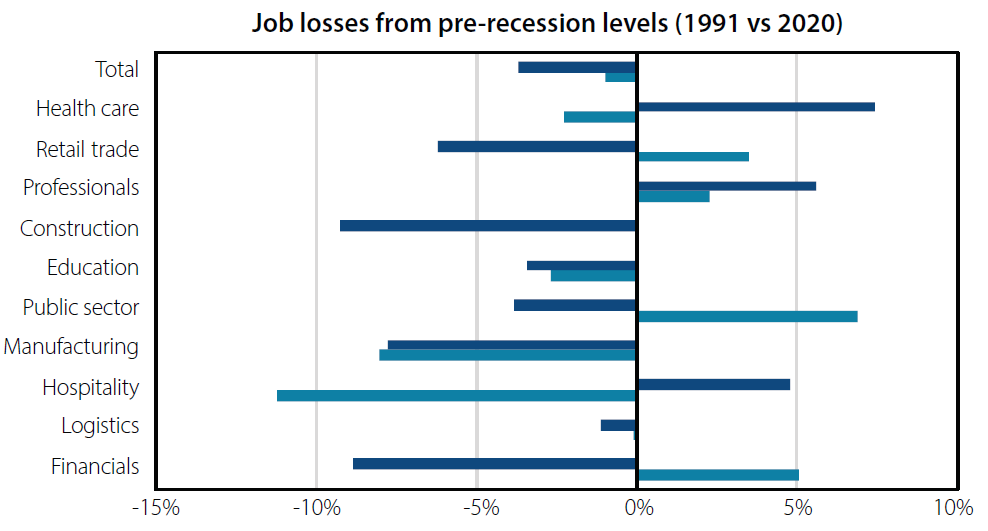Economic Update
|
What’s happening this quarter in economics? We explore the economic trends and updates from around the world to look out for.
Coronavirus Vaccinations Since December 2020, the world has embarked upon a mass effort to vaccinate against the Coronavirus pandemic. The leading solutions have been produced by joint ventures led by Pfizer, Moderna and AstraZeneca respectively. Israel and the UAE are amongst the leaders on a per-person basis with Israel reportedly beginning to see a decline in severity and mortality rates amongst its elderly citizens. Australia is employing a mix of both the Pfizer and AstraZeneca vaccine, with priority going to frontline staff and vulnerable groups such as the elderly. The vaccine rollout will reduce the risk of further lockdowns and allow the world to get closer to a “pre-Coronavirus” state. Whilst many countries are adhering to restrictions considerably worse than our own experience, unwinding these will be integral for many businesses to function well again, particularly in the services industries that are much more reliant on “in-person” experiences such as restaurants and tourism. However, downside risks remain including:
US Elections We recently saw the end of the Trump Presidency succeeded by Democrat nominee Joe Biden. The Biden Administration has issued several Executive Orders to reverse changes implemented under President Trump with a firmer commitment to climate change evident. In addition, there is a strong focus on further fiscal stimulus to support the US economy. The Administration’s 2021 goals are likely to be informed by:
Beyond these there are loftier goals to make climate change policy reform and combat inequality through tax reform. There will be challenges here to do more in Congress because, although the Democrats hold a majority, there are procedural tools that the Republicans can use to block legislation. Australian Outlook Businesses Australian businesses were major beneficiaries of Government stimulus programs since the Coronavirus pandemic began. JobKeeper has been a major backstop covering the bulk of employee costs and programs targeting the construction industry (HomeBuilder grants) have also supported spending. Other measures targeting business insolvency expired at the end of 2020. These protected small businesses by delaying bankruptcy proceedings for firms going into administration (an initial step before insolvency). 2021 may see these numbers start to climb to more normal levels, with weakness concentrated in areas such as hospitality. It is important to note that business failures are a normal part of our economy. For a variety of reasons, e.g., poor planning or poor market fit, it is difficult to build a functioning business easily. Could business struggles be even worse than this? Whilst it is possible, we would argue the broad recovery shown in economic data to-date suggests business insolvency is unlikely to be worse at a broader level. The scale of Government stimulus, such as JobKeeper, has played an important role here. In addition, as vaccinations begin to be administered more broadly, and economic activity returns “to normal”, we will likely see a bounce in demand as households gain the confidence to reduce a high savings rate of 18.9%, as of September 2020, which is down from its record high of 22.1% in June 2020. Households This has been an unusual recession experience, particularly compared to our last one almost 30 years ago. The following graph highlights some notable contrasts. |
|
For example, as of November 2020, the hospitality sector has 10% fewer jobs than it did in February 2020. By contrast, the public sector has gained almost 7% more jobs. This compares to hospitality gaining jobs in the last recession and the public sector losing them. The graph suggests the unwinding of Government stimulus such as JobKeeper is going to be more firmly felt in regions with greater reliance on tourism such as coastal Queensland. Conversely, however, the gains in other sectors, and falling unemployment, suggest an economic recovery is on track. That should see more jobs created overall. If you have any further questions, please speak to your Financial Adviser. |


